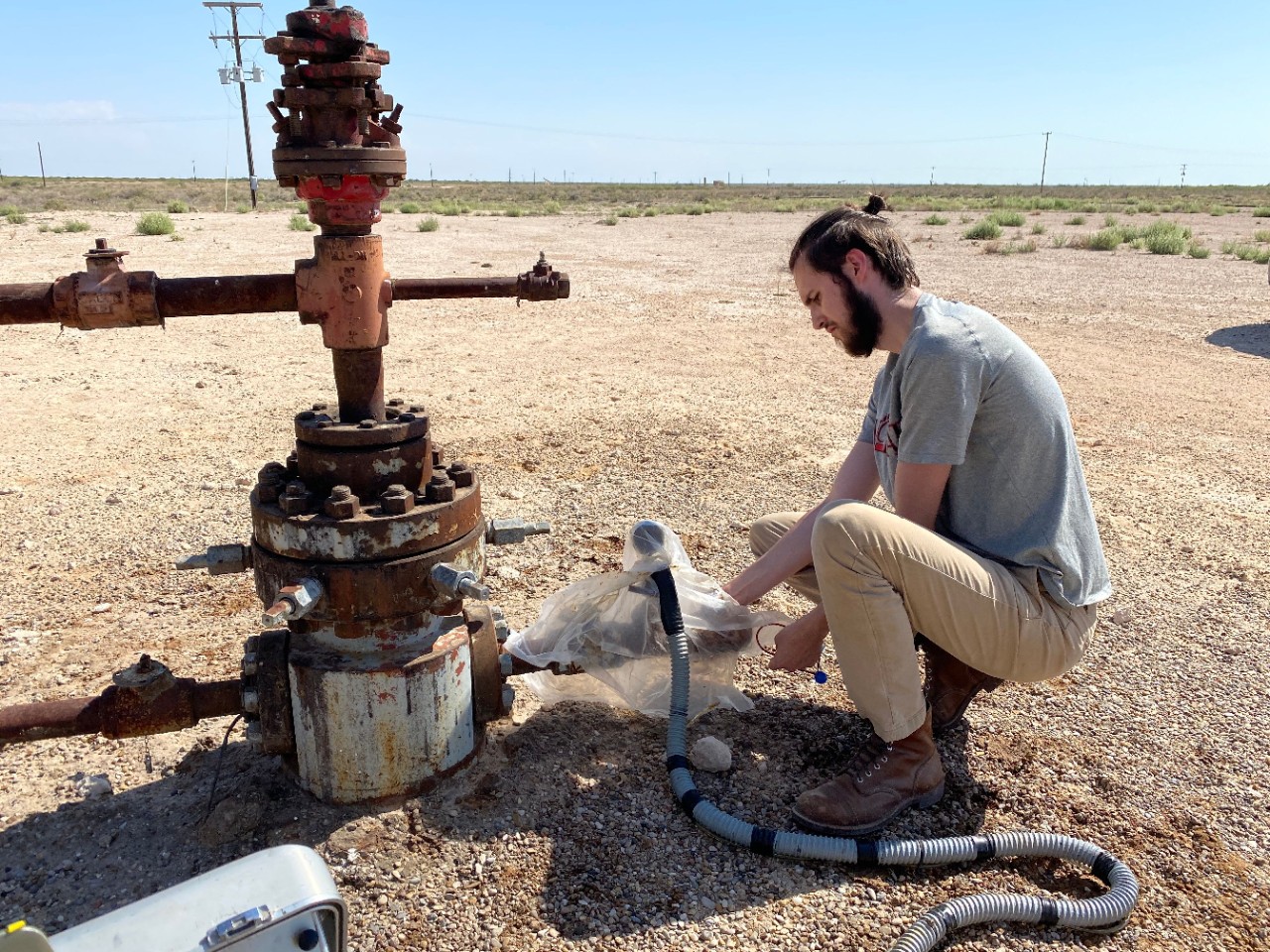
Bloomberg: Failed wells are polluters nobody watches
UC environmental studies professor talks about leaky oil and gas wells
Bloomberg Law turned to a University of Cincinnati expert on leaky oil and gas wells to explain why even capping them is no guarantee that they will not one day create environmental problems.
Companies are obligated to plug oil or gas wells that are no longer productive so they don't pollute the air or water. But some companies simply abandon them to avoid the costs.
Abandoned oil and gas wells can pollute drinking water and leak methane into the atmosphere, contributing to climate change.
The United States could have as many as 3.5 million abandoned or orphaned wells, left behind by companies that have gone out of business or for which there are no regulatory records.

Amy Townsend-Small. Photo/Jay Yocis/UC
But according to Bloomberg Law, even many wells that have been plugged with concrete or other materials can fail over time. And since there is little government monitoring, nobody knows the full extent of the problem.
UC College of Arts and Sciences Professor Amy Townsend-Small teaches environmental studies. She has been studying the issue of leaking oil and gas wells across the United States.
She told Bloomberg that going back to examine capped wells has not been a priority because of the high number of uncapped wells that are leaking oil or gas.
“It would be great if all of these things could be monitored, if there was unlimited money,” she said, referring to plugged wells. “We cannot get money for this kind of research.”
Meanwhile, other energy practices could be contributing to more leaking oil and gas wells, Bloomberg reported.
Hydraulic fracturing for natural gas involves injecting wastewater and chemicals into the ground to extract natural gas. But Bloomberg found that pressure from this process has caused blowouts of nearby capped wells.
“This wastewater is corrosive because of high salt concentrations,” Townsend-Small said.
Bloomberg said Congress approved $4.7 billion in the 2021 bipartisan infrastructure law to plug wells, but there are no state or federal requirements to ensure the seals work.
Featured image at top: UC graduate Jacob Hoschouer measures methane emissions at the site of an abandoned well in Texas. Photo/Provided
Related Stories
Mural by UC grad honors U.S. military history
July 17, 2024
Local 12 highlighted a new mural by University of Cincinnati graduate and artist Brandon Hawkins that pays tribute to U.S. military history.
Social media fuels extreme political rhetoric
July 17, 2024
UC College of Arts and Sciences Professor Jeffrey Blevins tells Local 12 that online algorithms fuel political polarization on social media.
NIS program opens new horizons for international student
July 17, 2024
In his pursuit of physics and a taste for research, Akash Khanikor ventured from his hometown in India's Assam to the University of Cincinnati, drawn by the promise of hands-on exploration early in his undergraduate career as a NEXT Innovation Scholar.
UC archivist explores Troy’s invisible workers
July 17, 2024
UC Classics archivist Jeff Kramer examined the unheralded and largely uncredited role laborers played in the 1930s excavation at Troy in Turkey.
From intern to full-time: Recent Lighting Design grad joins Bandit Lites
July 16, 2024
Lighting & Sound America spotlights recent graduate Riley Rowan's new position at Bandit Lites, a full-service design, management and producer of live events and entertainment.
CCM alum Donald Lawrence to be inducted into Cincinnati Black Music Walk of Fame
July 16, 2024
UC College-Conservatory of Music alumnus Donald Lawrence is part of the 2024 class of Cincinnati Black Music Walk of Fame inductees. Located at the Banks in downtown Cincinnati, the induction ceremony on July 27 will feature a parade of stars and a free concert by the Zapp Band.
U.S. stroke survival is improving, but race still plays role
July 16, 2024
U.S. News & World Report, HealthDay and Real Health covered new research from the University of Cincinnati that found overall rates of long-term survival following stroke are improving, but Black individuals experience worse long-term outcomes compared to white individuals.
Presidential challenge to UC: Join Ride Cincinnati to fight cancer
July 16, 2024
UC President Neville Pinto has again challenged every UC college and unit to send at least one rider to the September 14 Ride Cincinnati event to help fundraise for cancer research and cancer care. UC students ride free. Signup by July 31 for free UC-branded cycling jersey.
Pediatric ICU rates linked to housing quality, income, education
July 16, 2024
Healio highlighted research led by the University of Cincinnati and Cincinnati Children's Hospital's Carlie Myers that found a link between pediatric ICU admission rates and housing quality, household income and education.
How to deal with workers' summer slumps
July 15, 2024
A summer slump featuring a loss in the quantity and quality of work is common, and instead of fretting about it, organizations should just roll with it, a University of Cincinnati business professor told Orlando, Florida-based WKMG's Breakfast With Bridgett. Scott Dust, PhD, the Fealy Family Chair in Entrepreneurship and an associate professor in the Department of Management at the Carl H. Lindner College of Business, said summertime changes people's psyches.
